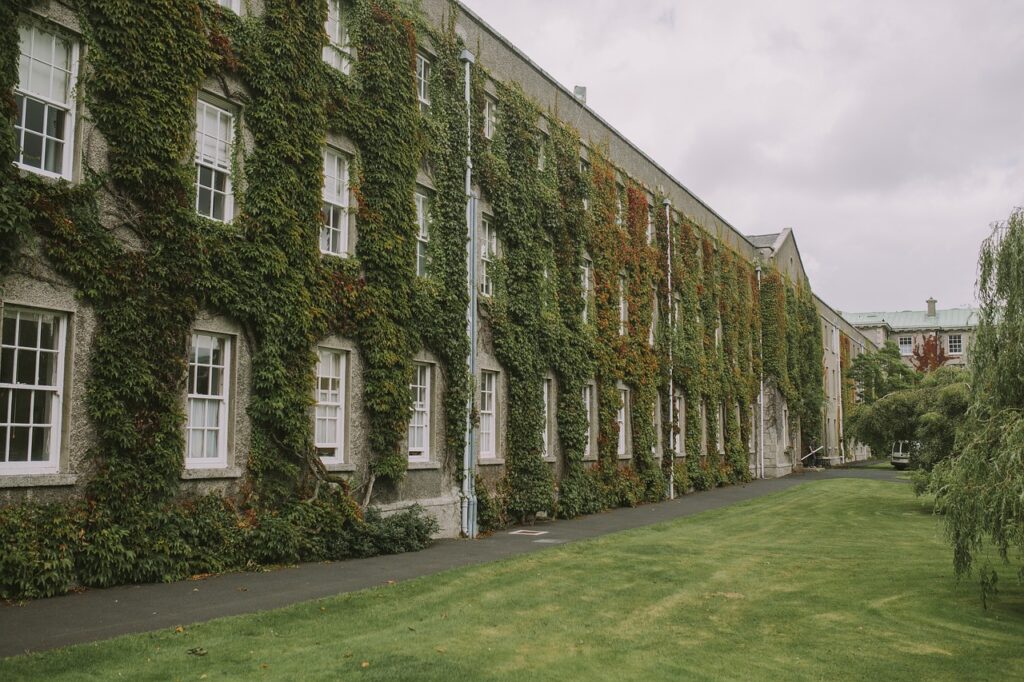Private universities are diverse higher education institutions that operate independently from government funding and control. They vary in size, focus, and affiliations, providing unique academic experiences and opportunities for students.
We aim to help adult learners and non-traditional students navigate the world of private universities by providing valuable insights into their advantages, drawbacks, costs, and enrollment trends.
Top Private Universities in the US
Private universities in the United States vary widely in terms of size, location, and programs offered. Here is a list of some notable private universities, along with brief descriptions and examples of programs they offer:
- Harvard University
- Location: Cambridge, Massachusetts
- Description: Harvard is one of the most prestigious Ivy League universities in the world. It offers a vast array of undergraduate and graduate programs, including liberal arts, business, law, medicine, and engineering.
- Website: https://www.harvard.edu/
- Stanford University
- Location: Stanford, California
- Description: Stanford is renowned for its innovation and entrepreneurship. It offers programs in various fields, such as computer science, business, engineering, and social sciences.
- Website: https://www.stanford.edu/
- Yale University
- Location: New Haven, Connecticut
- Description: Yale is another Ivy League institution with a strong focus on the liberal arts and sciences. Programs include humanities, social sciences, law, and medicine.
- Website: https://www.yale.edu/
- Massachusetts Institute of Technology (MIT)
- Location: Cambridge, Massachusetts
- Description: MIT is a world leader in STEM education and research. It offers programs in engineering, computer science, physical sciences, and technology-related fields.
- Website: https://www.mit.edu/
- Princeton University
- Location: Princeton, New Jersey
- Description: Princeton is a prestigious Ivy League university known for its focus on undergraduate education. Programs include the humanities, social sciences, natural sciences, and engineering.
- Website: https://www.princeton.edu/
- University of Chicago
- Location: Chicago, Illinois
- Description: The University of Chicago is known for its intellectual rigor and research contributions. It offers programs in fields such as economics, business, social sciences, and physical sciences.
- Website: https://www.uchicago.edu/en
- Columbia University
- Location: New York City, New York
- Description: Columbia is an Ivy League university with a diverse range of programs, including the arts, social sciences, business, law, and public health.
- Website: https://www.columbia.edu/
- Northwestern University
- Location: Evanston, Illinois
- Description: Northwestern is a private research university with a strong emphasis on programs in journalism, communication, business, and engineering.
- Website: https://www.northwestern.edu/
- Vanderbilt University
- Location: Nashville, Tennessee
- Description: Vanderbilt is known for its liberal arts programs and research. It offers programs in humanities, social sciences, education, and healthcare.
- Website: https://www.vanderbilt.edu/
- Duke University
- Location: Durham, North Carolina
- Description: Duke is a private research university with a strong focus on health-related fields, law, business, and engineering.
- Website: https://duke.edu/
- University of Southern California (USC)
- Location: Los Angeles, California
- Description: USC is a private research university with programs in cinema and media, business, engineering, and social sciences.
- Website: https://www.usc.edu/
- Georgetown University
- Location: Washington, D.C.
- Description: Georgetown is known for its programs in international relations, law, business, and healthcare.
- Website: https://www.georgetown.edu/
- Brown University
- Location: Providence, Rhode Island
- Description: Brown University, an Ivy League institution, is known for its open curriculum, allowing students to design their own courses of study. It offers a wide range of programs in the arts, sciences, and humanities.
- Website: https://www.brown.edu/
- Carnegie Mellon University
- Location: Pittsburgh, Pennsylvania
- Description: Carnegie Mellon is a renowned research university with strengths in computer science, engineering, fine arts, and business.
- Website: https://www.cmu.edu/
- Johns Hopkins University
- Location: Baltimore, Maryland
- Description: Johns Hopkins is a leading research university, especially known for its programs in health sciences, engineering, and international relations.
- Website: https://www.jhu.edu/
- Rice University
- Location: Houston, Texas
- Description: Rice University is a top-tier research institution with strong programs in the natural sciences, engineering, business, and social sciences.
- Website: https://www.rice.edu/
- Syracuse University
- Location: Syracuse, New York
- Description: Syracuse University is known for its programs in communication, journalism, architecture, business, and the arts.
- Website: https://www.syracuse.edu/
- Tulane University
- Location: New Orleans, Louisiana
- Description: Tulane University offers a diverse range of programs, including public health, law, business, and the liberal arts.
- Website: https://tulane.edu/
- Wake Forest University
- Location: Winston-Salem, North Carolina
- Description: Wake Forest University emphasizes a liberal arts education and offers programs in areas such as business, law, and health sciences.
- Website: https://www.wfu.edu/
- New York University (NYU)
- Location: New York City, New York
- Description: NYU is a global university known for its programs in arts and media, business, law, and social sciences.
- Website: https://www.nyu.edu/
- University of Notre Dame
- Location: Notre Dame, Indiana
- Description: Notre Dame is a prominent Catholic research university known for its programs in theology, business, law, and engineering.
- Website: https://www.nd.edu/
- Boston University
- Location: Boston, Massachusetts
- Description: Boston University offers a wide variety of programs, including liberal arts, sciences, business, and health sciences.
- Website: https://www.bu.edu/homepage-alt/
- Rensselaer Polytechnic Institute (RPI)
- Location: Troy, New York
- Description: RPI is known for its strong programs in engineering, computer science, architecture, and business.
- Website: https://www.rpi.edu/
- Bucknell University
- Location: Lewisburg, Pennsylvania
- Description: Bucknell University is a liberal arts college known for its programs in the natural sciences, humanities, social sciences, and engineering.
- Website: https://www.bucknell.edu/

What are Private Universities?
Private universities are higher education institutions that operate independently of government funding and oversight. These institutions possess unique characteristics that differentiate them from public universities. They receive financial support primarily through tuition fees, endowments, and donations, allowing them greater autonomy in decision-making and resource allocation. This freedom often translates into personalized academic experiences, innovative curricula, and a diverse range of institutions catering to various student needs.
Types of private universities include liberal arts colleges, research universities, and faith-based institutions. Liberal arts colleges emphasize broad-based education in humanities, social sciences, and natural sciences, fostering critical thinking and communication skills. Research universities focus on cutting-edge inquiry and discovery, offering advanced degree programs and opportunities for collaboration with renowned faculty. Faith-based institutions, on the other hand, integrate religious teachings and values into their curricula and campus life, appealing to students who seek a spiritually-aligned education.
Key distinctions between private and public universities include funding sources, governance structures, and the scope of educational offerings. Public universities receive significant government funding, enabling them to offer a wide range of programs at lower tuition costs. In contrast, private universities rely on alternative funding sources, which may result in higher tuition fees but also greater flexibility and a more intimate learning environment.
Advantages of Private Universities
Private universities offer several advantages that can enhance the overall learning experience for students. One key benefit is the smaller class sizes and better student-to-faculty ratios. This allows for more personalized attention from professors, fostering deeper engagement with the course material and better opportunities for collaboration.
Additionally, private universities often have an enhanced focus on research and academic excellence. This translates to cutting-edge facilities, rigorous academic programs, and a commitment to producing high-quality research that contributes to career advancements in various fields.
Financial aid and scholarships are often more readily available at private universities. These institutions tend to have larger endowments, which allows them to offer generous financial assistance to students, making education more accessible for individuals from different socioeconomic backgrounds.
Lastly, private universities tend to offer greater access to specialized programs and resources. Students can benefit from unique academic opportunities, research collaborations, and tailored support services that cater to their specific needs and interests.
Disadvantages of Private Universities
While private universities offer numerous benefits, there are also some drawbacks to consider. One of the main disadvantages is the higher tuition fees and overall cost of attendance. These institutions typically have higher tuition rates than public universities, which can make them less accessible for some students.
Another disadvantage is the limited enrollment and more competitive admissions process. Private universities often have smaller student populations and stricter admission requirements, making it more challenging for students to secure a spot.
Potential lack of diversity in the student population is another concern. Some private universities may have less diverse student bodies in terms of race, ethnicity, and socioeconomic background compared to public institutions.
Finally, smaller campus sizes and fewer extracurricular activities can also be a downside for some students. Those who prefer a larger campus with a wide range of activities and clubs may find private universities less appealing in this aspect.

Cost of Private Universities
The cost of attending a private university is influenced by various factors, including the institution’s endowment, location, size, and the programs offered. Tuition and fees at private institutions are typically higher than those at public universities due to their reliance on private funding sources. According to the National Center for Education Statistics, the average cost of attendance for a non-profit private university in the US was $55,800 per year in 2021-2022.
When comparing costs between private and public universities, it is important to consider factors such as in-state versus out-of-state tuition rates, financial aid packages, and potential cost savings from attending a smaller institution. While private universities may have higher tuition rates, they often provide more personalized attention and resources, which could ultimately benefit students in the long run.
Financing Private University Education
The cost of private university education can be a significant financial burden for many students and their families. However, there are several strategies that can help manage the cost of attendance and make private education more accessible, which include applying for scholarships and grants, participating in work-study programs, taking out student loans, and seeking employer-sponsored education benefits.
Applying for financial aid and scholarships is an essential step for many students. Private universities often have a variety of financial assistance programs, including need-based aid, merit scholarships, and grants, to help students cover tuition and other expenses.
Considering work-study programs or part-time employment can also help offset the costs. These options allow students to earn money while attending school, reducing their reliance on loans and other forms of financial assistance.
Finally, exploring alternative education options, such as online degree programs or vocational schools, can provide students with more affordable and flexible pathways to achieving their career goals.
Pathways to Advancement offers comprehensive financial guides to help adult learners and non-traditional students navigate the complexities of financing their education at private universities.
Enrollment Trends at Private Universities
Recent trends in private university enrollment in the US show fluctuations due to various factors, such as economic conditions, changing student demographics, and shifts in educational preferences. For example, the National Student Clearinghouse Research Center reported a 0.2% decline in private nonprofit four-year institutions’ enrollments in Spring 2022.
Factors contributing to these fluctuations include economic recessions, which may lead students to seek more affordable public institutions, and a growing emphasis on alternative education pathways, such as online programs and vocational schools. Additionally, demographic changes, such as a decline in the traditional college-age population, can also impact enrollment numbers at private universities.
For prospective students considering private universities, these enrollment trends may have various implications. Institutions with declining enrollments may be more motivated to offer financial aid and incentives to attract students, while those with stable or growing enrollments may have greater resources to invest in academics and student services. It is essential for students to research enrollment trends at their target universities and consider the potential impact on their educational experience.

Choosing the Right University for Your Needs
When deciding on a university, it is essential to weigh the pros and cons of private institutions and consider various factors to ensure the chosen university aligns with your personal preferences and goals. This includes evaluating academic and extracurricular opportunities, as well as financial considerations and affordability.
Consider the university’s campus size, location, available majors, and resources in addition to the institution’s reputation and cost. By exploring these elements, students can make informed decisions about which university best suits their academic pursuits and career aspirations.
